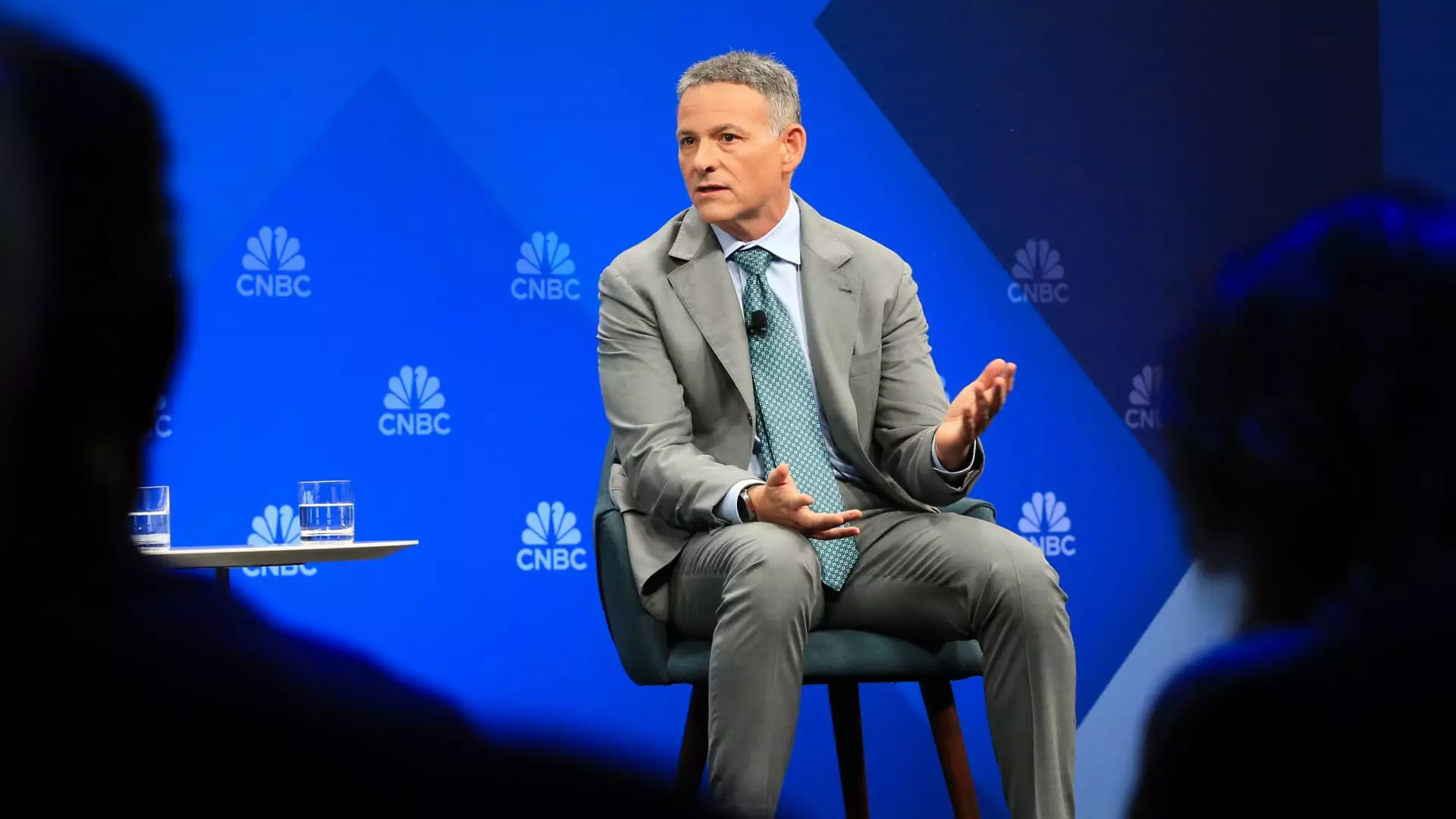In an era of relentless fiscal expansion, the gold market’s recent surge is more than just a financial blip—it’s a clarion call for caution. With prices soaring over 20% this year alone, predominantly in the first quarter, investors are flocking to gold as a safe haven. Renowned hedge fund manager David Einhorn, head of Greenlight Capital, articulates a sentiment that many discerning investors share: gold is not merely a commodity; it represents an unmistakable crisis signal regarding current fiscal and monetary policies in the United States.
Einhorn’s assertions, particularly his focus on the “confidence in fiscal policy and monetary policy,” shed light on a troubling truth. The aggressive stance of U.S. government spending, coupled with ineffective cuts from the Department of Government Efficiency, is not merely creating unease; it’s constructing a precarious economic landscape. The bipartisan inertia surrounding the budgetary deficit is particularly alarming. Politicians seem content to ignore the looming crisis until it arrives at their doorsteps. Such complacency invites catastrophic consequences, and Einhorn is right to spotlight the inherent risks in such neglect.
Contrarian Perspectives: Gold vs. Stocks
Einhorn’s perspective becomes even more compelling when juxtaposed against the broader market tendencies. The first quarter of the year saw Greenlight Capital posting an impressive 8.2% gain, while the S&P 500 plummeted over 4%. It’s astonishing how the traditional stalwarts of investment are losing ground to a tangible asset like gold. This divergence continues to highlight the growing discontent with conventional investment strategies, which are failing to provide the security investors desire amidst economic turmoil.
Moreover, Einhorn clarifies that he does not consider gold purely as an inflation hedge, which brings an additional layer of nuance to his argument. Instead, he presents a more complex relationship where inflation indicators—such as his positions on long-duration inflation swaps—signal a belief that inflation will not be adequately controlled by current market expectations. This view resonates strongly, especially in a climate where governmental intervention often leads to unintended consequences, further fueling inflation rather than curbing it.
The Impending Economic Reckoning
Einhorn’s observations catalyze a broader discourse on the economic reckoning that seems inevitable if current policies persist. The golden rally should propel investors to reassess their portfolios and consider the implications of persistent debt, uncontrolled spending, and systemic risk. As they flock to commodities like gold, the overarching theme is clear: confidence in regulatory and fiscal measures is waning.
For those in the center-right, this isn’t merely a financial discussion but an ideological warning. The belief that markets can self-correct under the weight of excessive government interference is increasingly untenable. Wealth generation and economic stability depend on prudent policy and governance, not on reckless spending or endless monetary expansion. The current administration must recognize these facts or risk facing an economic crisis that could overshadow the financial gains celebrated today.
Investors must heed the market’s signals, particularly in the context of gold’s ascent. As we brace for what may come, the choice becomes stark: adapt to sound financial principles or succumb to the chaos created by misguided policies. The strong desire for change in fiscal governance cannot be overstated—it’s not just about preserving wealth; it’s about ensuring a viable future for our economic landscape.

